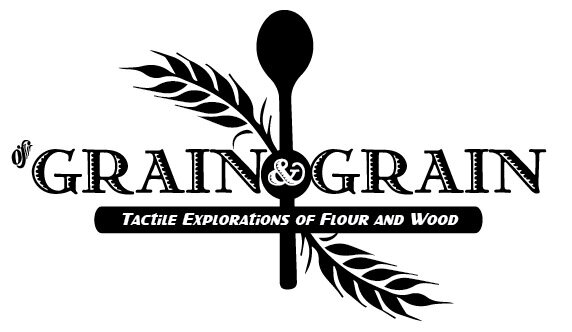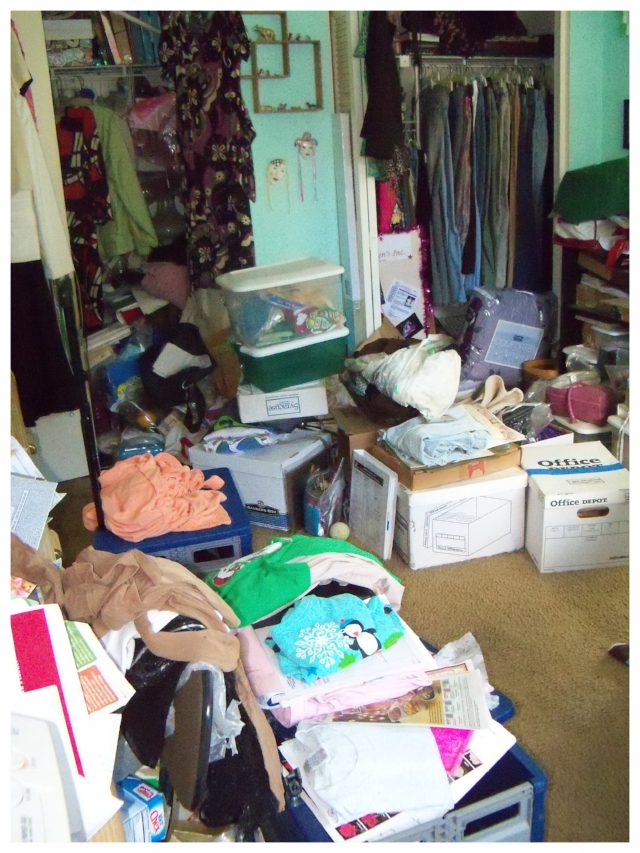5 Tips For Downsizing Seniors
Hey there!
June and I are back with some tips for downsizing seniors. This is actually much easier said than done and I can say this with certainty as I've now spent the last three years bringing a sense of order to the house I grew-up in. It was never the most organized of homes but as my parents health declined, the house grew further and further from any sense of security. Their slide into dementia and Alzheimer's was increasingly complicated by the sheer presence of stuff.
Stuff I realize is often a sore subject. Those that have it, struggle getting rid of it and those that inherit it feel burdened by the responsibility of managing it. Seniors and youth often find themselves at odds. Arguments about the value of antiques and heirlooms need to be measured alongside the expense of missed work, cost of storage, and the cost of transportation. It's not that the youth of today value low quality items made in China or whatever the case may be, but rather the youth of today are in fact working and providing for their own families and have purchased their own belongings as time and means allowed. As any generation with the privileged to afford goods, they purchase items that speak to them with regard to their personal taste, budget, and space. The assumption that items will be passed on and swapped out can belittle the hard work one took to establish their own household and I encourage seniors to pause before assuming younger generations will want their wares. I would also encourage younger generations to ask questions and learn the history behind family belongings as many items are valuable because of their stories.
Needless to say, "stuff" is a complicated subject for families and June from Rise Up for Caregivers is here with a handful of tips to help give the process of downsizing some momentum. Read hers below and please share any you have discovered. Decluttering and downsizing can be a massive undertaking so please don't hold back on suggestions!
For seniors, there are plenty of reasons to need to downsize - you’re moving to a smaller home, moving to an assisted living community, decluttering to make aging in place easier, or simply because you want to get rid of some things and streamline your life. Whatever the reason, it’s never a pleasant task to begin, however, the results are usually rewarding. Here are some tips to make it more manageable.
Put gadgets in boxes
This is a trick to figure out exactly what you use and what you don’t. If you have a month or two to spare (before a move, for instance), pack up like items into boxes. Put all of your kitchen gadgets, electronic gadgets, and other gadget-like items in their own boxes. Now, over the course of the next couple of months, take out the items as you need them. What’s left in the box after a few weeks are items you probably don’t need. Do note, this works best for “useable” items. There are plenty of things that you won’t “use” in the course of a month that you still want to keep like photos, jewelry, and other sentimental items.
Institute a “one in, one out” rule with collections
When it comes to books, DVDs, CDs, and other types of collections, we can amass more than we know what to do with by the time we are seniors. One way to make downsizing these collections easier is to institute a one in, one out rule. For every one you keep, throw one out (or donate it).
Precisely measure your new living space
This tip is crucial if you’re moving to a retirement community, where you’ll have significantly less living and storage space. Have a loved one go to your new space and measure everything - closets included. Make a quick sketch of the floor plan and then get to work planning where everything will go. Once you have a place for everything you truly need in your new retirement community space, it’ll be easier to part with the stuff that simply cannot fit.
Go digital
Downsizing is about getting rid of physical items to unburden yourself and create more space, but that doesn’t mean you have to get rid of memories. Use internet storage to your advantage. If you have a bunch of old photo albums or scrapbooks, think about scanning these images into a computer and uploading them to an online photo storage site (here are some of the best). If you have other keepsakes and mementos, take photos of them and get rid of the physical item. This will allow you to keep the memory, but ditch the bulky items. More on downsizing your photo collections here.
Take “maybe” out of your vocabulary
When deciding what to keep, what to throw away, and what to donate, you should make those decisions as you pack and organize. Ditch the “maybe” pile. If you allow yourself the option of not making a decision on an item, you’re much more likely to keep it later on. If you truly want to downsize, you have to make hard choices as you go.
Downsizing is always going to be stressful. For many, it can be downright emotional. Getting rid of possessions is never going to be easy, but it’s vital if you’re moving to a smaller living space or simply want to declutter your life to give yourself more independence. Start early, give yourself time to organize, make tough decisions as you go, and don’t be afraid to get rid of duplicate items. In the end, you may find that you feel better - or at least less burdened - after you rid yourself of all that physical baggage.
Ok, now its your turn! Please comment below with thoughts and suggestions or any best practices you have on this topic. I personally find it overwhelming and as you can tell from the pictures above I have many thoughts on this subject. So many in fact I found it hard to capture my thoughts and needed to pull June in to help us get the conversation going. Let's here your suggestions! I'll add some of my own thoughts in the comments and we'll see where the topic goes.












